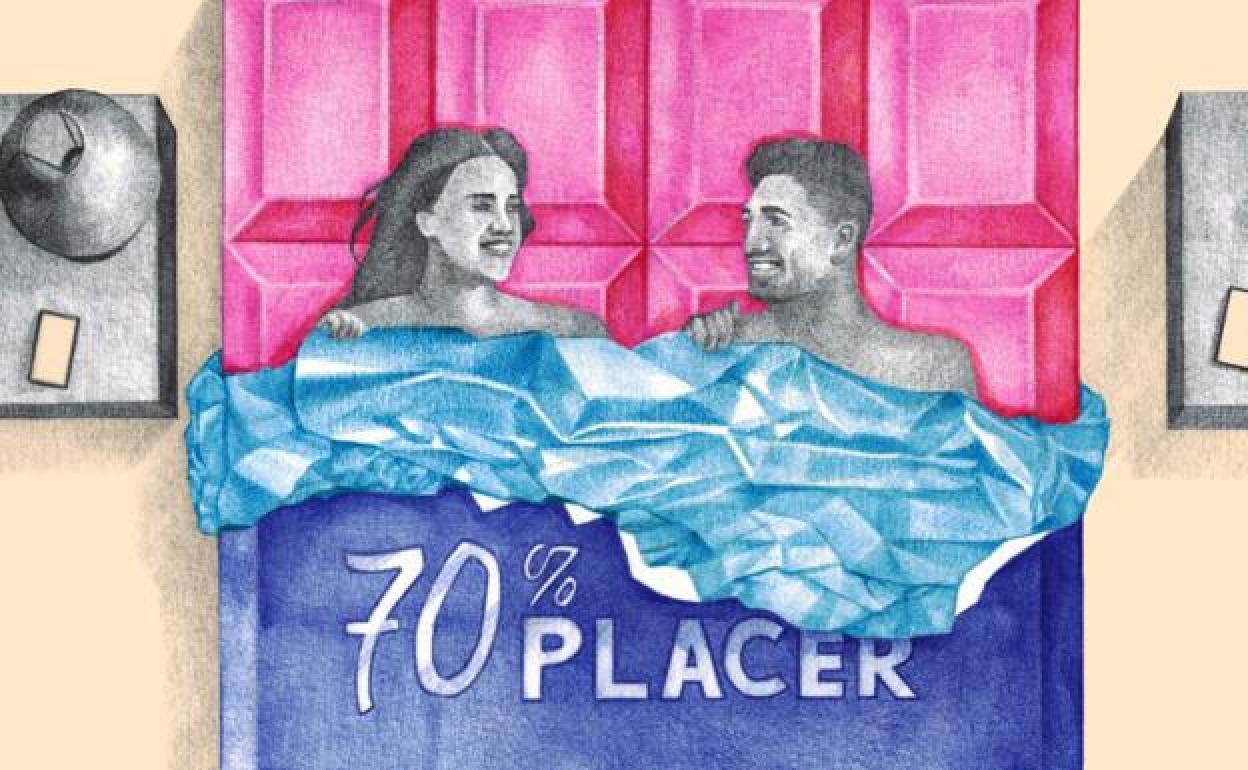Forget oysters and chocolate. 'The most powerful aphrodisiac is the mind'
Recent research refutes the idea that some foods can increase libido
Isaac Asenjo
Friday, 11 February 2022, 14:44
The power of aphrodisiacs has been sought after since time immemorial and every period of history seems to have had its own. While nowadays people talk about avocado or coconut oil, Genesis refers to mandrake as the fruit of desire; Greek literature talks of the virtues of eggs, shellfish and beans; and the Kamasutra recommends a mixture of milk, honey and sesame seeds. Not forgetting, of course, the classic chocolate and cinnamon.
However, before anyone heads to the shops to prepare for a romantic evening, it should be noted that recent research refutes the idea that some foods can increase libido.
These experts insist that nothing sparks sexual desire on its own. Not oysters, or strawberries and cream, nor rhinoceros horn or any concoctions.
What happens in bed is just a matter of hormones and neurotransmitters. To be more specific, it depends on a septet which consists of dopamine, noradrenaline, serotonin, testosterone, oestrogens, oxytocin and cortisol. A dream team of happiness and pleasure.
After studying the PubMed database, which contains all publications relating to health matters, nutrition expert Ana Belén Ropero Lara says the results are disappointing.
This lecturer, who is a biochemist, explains in an article that various studies carried out in Italy and the USA showed no relationship between sexual appetite and the consumption of chocolate or strawberries.
On the other hand, what science has shown is an increase in testosterone in the blood after eating oysters. The bad news is that it was in mice, and not in humans.
A menu with an air of mystery
So no matter how much phenylethylamine there may be in cocoa, arginine in pulses or zinc in red meat, they do not contain sufficient chemical components to generate a sexual arousal response in the body.
"The mind is the most powerful aphrodisiac. It is very difficult to evaluate whether something a person takes as an aphrodisiac really has that 'virtue' or, as seems to be the case, it is more of a placebo effect," says Alicia López Losantos, a psychologist and mediator who specialises in relationships between couples.
Although she recognises that some foods can help to improve our mood, she considers that aphrodisiacs are really a mixture of things, including the type of food we eat and what there is around us.
"If you go for a special meal with an air of mystery, a sense of excitement, which you can enjoy with several of your senses such as taste and smell, and in lovely, intimate and comfortable surroundings, then you can let your imagination fly so the night has a memorable ending.
All our thoughts, feelings and pleasurable body sensations are mediated by the action of some of our neurones," she says.
So a neutral stimulus such as an ice cube, whose function is to cool down a drink, could be used in sexual play and take on an erotic aspect.
Nevertheless, in order to have a satisfying sex life, food does also play an important role. "We should all eat a healthy diet, high in fruit, vegetables, dairy products, fish and cereals, to avoid pathologies such as diabetes or atherosclerosis, which can cause a deterioration in the blood supply and, as a result, a decrease in erections in men and libido in women," explains Fernando Cordido, the head of Endocrinology and Nutrition at A Coruña hospital.
Shapes and colours
It therefore makes no sense to make a fixed list of aphrodisiac products.
As Alicia López Losantos says, the physical appearance of some foods can evoke the sensuality of genital organs because of their shape or colour, but in no way are they going to incite or cause sexual desire as a result of their components and nutrients.
"Scientifically, the only substances that cause erection in a man are yohimbine and cantharidin, but both have side effects and their use is discouraged," she says.
But it is not just a question of food: drinks have also traditionally been attributed with having aphrodisiac qualities. Can that be true?
"Alcohol leads to a lack of inhibition at a cerebral level and a greater blood flow, so that favours the flow in the genital area and facilitates arousal and the wish to achieve orgasm, but in very large quantities it is absolutely counterproductive and can cause erectile dysfunction in men," says López Losantos.
Of course, in the collective imagination it is not at all the same thing to go on a date and eat potatoes and alioli as it is to enjoy bubbly and strawberries, but does that mean that the strawberries are going to make us feel more like having sex than the potatoes?
As a food, no, but by generating a particular context, they could have the desired effect.
Millions suffer from sexual dysfunction
Several million people in Spain are affected by sexual dysfunction. In specific numbers, it is estimated that one third of women of a pre-menopause age suffer from some form of it, and between 1.5 and two million men have the problem, according to figures from the Spanish Society of Family Medicine. Cancer, diabetes, medication, hypertension, cardiovascular problems and depression are some of the causes of this dysfunction in men and women. With regard to solutions, apart from the pharmaceutical treatments prescribed by medical professionals, in the most extreme cases there are two scientifically proven alternatives: intracavernous injections and the surgical option, with penile prosthesis.
